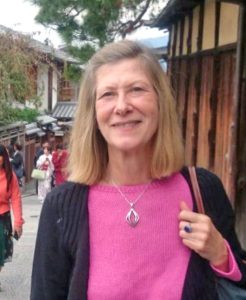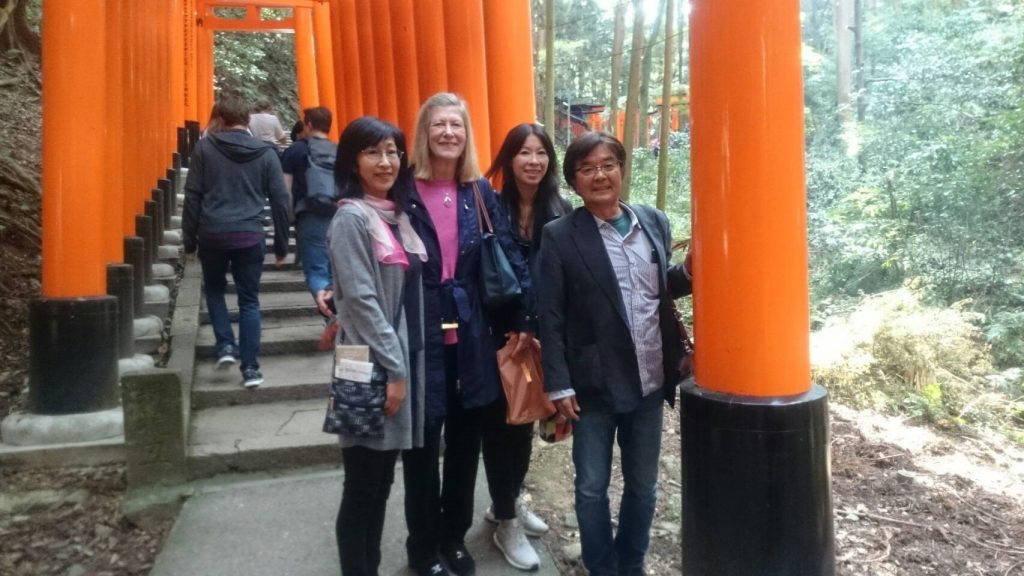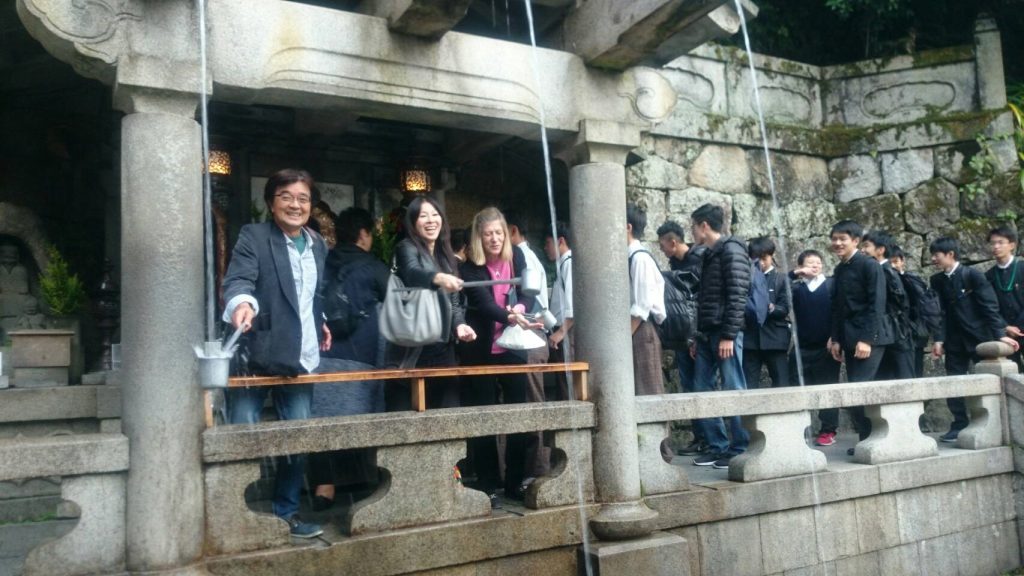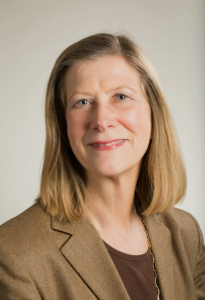Since its inception in 1952, the International House of Japan through its multitude of intercultural and intellectual programs have facilitated in-person and in-depth dialogues and other forms of exchanges for thousands of young and established professionals from across Japan and the rest of the world. Stories of their experiences reflect how human diplomacy can plant seeds for understanding, friendship and cooperation across societies. The impacts of education and cultural exchange activities are difficult to measure as it is not about simply obtaining a degree or certificate but what one does with that knowledge and skill to effect positive change in industry and society. These stories from I-House fellowship alumni allow insights into how the I-House has lived up to its mission to “contribute to building a free, open, and sustainable future through intellectual dialogue, policy research, and cultural exchange with a diverse world.” And through these alumni stories, the I-House seeks inspiration and guidance to carry on its mission into the future.
#3 “Effective Communication – Clear Message, Context and Nuances”

Joanne Hvala has had a long and rich career in communications, serving in numerous leadership roles at private and non-profit organizations. In each instance, she used her insights and skills in cross-cultural communications to improve understanding among groups with different backgrounds and agendas, often working with diverse international partners and customers. She was first a manager for marketing communications in General Electric’s international trading operations unit in the early to mid-1980s. In the next decade, she directed corporate advertising for the Loral Corporation (later acquired by Lockheed Martin) and rose to become a vice-president responsible for, among others, advising its corporate leaders on media relations, advertising, and managing investor relations. Her next corporate leadership role as the Director for Communications for Sony Corporation of America saw her developing and implementing public relations programs when online advertising was just beginning to take hold and advising senior executives on communication strategies and issues.
Into the 2000s, her career took a new direction when she joined New York University’s Stern Business School to serve as their Associate Dean for Marketing and External Relations. This role saw her developing and implementing strategic and integrated marketing and communications campaigns to launch new academic programs, including the top ranked TRIUM Global Executive MBA program, which joined the faculty of NYU Stern, HEC Paris and the London School of Economics in a partnership to deliver a joint program that was the first of its kind. Columbia University’s School of International and Public Affairs came next. As the Associate Dean for Marketing and External Relations, Joanne again developed and implemented integrated communications strategies to enhance the school’s reputation. Columbia University’s College of Engineering then hired her in a similar role, with oversight of the college’s internal and external communication initiatives. A key objective was to make the college a leader in recruiting and retaining women students at both undergraduate and graduate levels.
After decades of work and leadership in communications, Joanne decided to cap off her career by imparting her knowledge and insights to the next generation of communications professionals. Since 2020 she has taught business communications to international students at Baruch College.

How did this woman who went to an all-girls Catholic high school in Cleveland, Ohio in the 1970s then took an undergraduate degree in English Literature and Linguistics at Miami University, as well as a Rotary scholarship to study medieval and Renaissance art history at the Sorbonne in Paris got onto a career in global advertising and marketing and strategic communications? Well, Joanne did take the first step into the corporate world on her own but credits her experience in Japan for vital insights into effective communication and especially in cross-cultural contexts.
A job at General Electric (GE) in Cleveland led to a move to its International Trading Operations office in New York City to edit its quarterly magazine sent to industrial customers worldwide. As one who values education, Joanne also enrolled in a part-time Master’s in Business Administration (MBA) program at Baruch College, continuing the business studies she began in Cleveland. It was at the college that she saw a flyer for the Japan Society-International House of Japan Business Fellowship program. She applied and was selected, and GE granted her leave to take advantage of this opportunity.
Japan was a place of interest to Joanne, a reason she had joined the Japan Society in New York even prior to her application to the Business Fellowship program. So, in 1984 she landed in Tokyo for her two-month internship at Sony’s International Marketing Department. Though she had previously been to Japan, as well as Thailand, Indonesia and Hong Kong, to interview GE customers for stories about such products as aircraft engines, medical systems, power generation and mobile radios, the experiences of working in a Japanese office, living in the men’s dormitory at Sony, and traveling on her own to Kyushu on a holiday week gave her an entirely different viewpoint and a much deeper understanding of Japan, its people and culture…a place that fascinated her and still does today, she added.
Before each of the seven Business Fellows that year took off for their respective corporate internships, they stayed at the International House of Japan for a program orientation and a crash course in Japanese business etiquette and cross-cultural differences. She recalled Mr. Tatsuya Tanami, the program director at I-House, guiding them, answering questions, and forging a group “wa.”
This full immersion in Japanese corporate world and society, and guidance from a Japanese American colleague at Sony and other friendly co-workers, gave her a better understanding of experiences she had on her GE reporting visits. Her work at Sony exposed her to many things: from Sony’s history to touring its factories, seeing how Nam Joon Paik (Korean artist and pioneer in video art) used Sony television sets in his art, visiting retail stores across Tokyo to see how Sony products appeal to customers, and seeing new products, such as a robotic dog, being developed. Meeting people at Sony and hearing their life stories and experiences in Japan also gave her profound insights into Japanese corporate culture and cross-cultural communication. Among those most impactful were Mr. Sen Nishiyama, a Japanese American who was a speechwriter to Mr. Akio Morita, the founder of Sony, and Betty Kozuki, who later became one of the early women managers at Sony. She, in turn, applied her communication skills in many work tasks at Sony, including substantively improving English versions of documents for a Sony business venture with China.

Joanne credits her time in Japan—a place very different from what she was familiar with in the U.S. and Europe—with giving her a deeper appreciation of differences in cultural values and social norms and finding ways to bridge them. Leaders cannot be successful if they cannot communicate effectively. Neither can individuals work well together without effective communication. Behind the words and images are ideas that must appeal to them and resonate with their values. Her time in Japan impressed on her the importance of building relationships and trust, as well as developing her sensitivity to nuances in verbal and non-verbal communication. These insights, she says, has served her well in her career across business and academic institutions to bridge “cultures” (nationality, gender, socio-economic status, academic, industry, etc.) within an organization and in its outreach to external audiences. And these insights remain core to her work today in teaching the next generation of professionals to become effective communicators.
Joanne Hvala
 is an adjunct professor at Baruch College, where she has taught Business Communications to international students. Earlier, she served as Senior Director for Communications at Columbia University School of Engineering from April 2016 to August 2019. Prior to joining Columbia University, Ms. Hvala held senior-level communications positions at New York University’s Stern School of Business, Sony Corporation, Lockheed Martin, Loral Corporation, and General Electric.Ms. Hvala graduated from Miami University in Oxford, Ohio, with a BA in English. As a Rotary lnternational Fellow, she studied art history at the University of Paris (Sorbonne) after graduating, and while working at GE, earned her MBA in international marketing from Baruch College, City University of New York. She was selected as a Business Fellow in Japan by the Japan Society in 1984 and was awarded an internship at Sony’s corporate headquarters in Tokyo. She serves as a trustee on the Board of The Baruch College Fund and has been a member of the Board of Miami University’s College of Creative Arts.
is an adjunct professor at Baruch College, where she has taught Business Communications to international students. Earlier, she served as Senior Director for Communications at Columbia University School of Engineering from April 2016 to August 2019. Prior to joining Columbia University, Ms. Hvala held senior-level communications positions at New York University’s Stern School of Business, Sony Corporation, Lockheed Martin, Loral Corporation, and General Electric.Ms. Hvala graduated from Miami University in Oxford, Ohio, with a BA in English. As a Rotary lnternational Fellow, she studied art history at the University of Paris (Sorbonne) after graduating, and while working at GE, earned her MBA in international marketing from Baruch College, City University of New York. She was selected as a Business Fellow in Japan by the Japan Society in 1984 and was awarded an internship at Sony’s corporate headquarters in Tokyo. She serves as a trustee on the Board of The Baruch College Fund and has been a member of the Board of Miami University’s College of Creative Arts.
Archives
| #3 “Effective Communication – Clear Message, Context and Nuances” | |||
| #2 “Never Stop Learning and Always Have Hope and Believe in Peace” | |||
| #1 “Advancing women and humanity through words and ideas” |